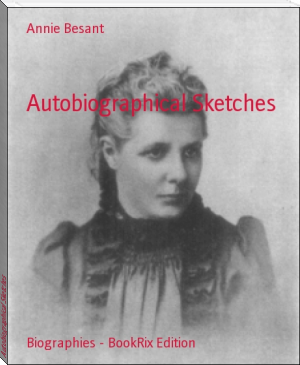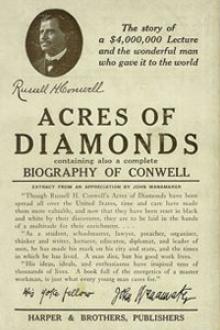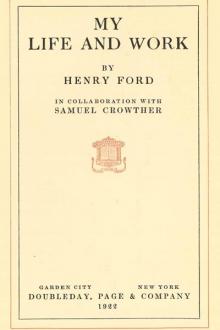Annie Besant - Annie Besant (free e reader .txt) 📗

- Author: Annie Besant
Book online «Annie Besant - Annie Besant (free e reader .txt) 📗». Author Annie Besant
"This long and severe illness has disappointed the hopes and retarded the object for which he came to this country; but he is gentleness and patience itself in his sickness in this strange land, and has endeared himself greatly to his physicians and attendants by his gratitude and appreciation of the slightest attention."
His fortitude in face of death was also much commented on, lying there as he did far from home and from all he loved best. Never a quiver of fear touched him as he walked down into the valley of the shadow of death; the Rev. Mr. Frothingham bore public and admiring testimony in his own church to Mr. Bradlaugh's noble serenity, at once fearless and unpretending, and, himself a Theist, gave willing witness to the Atheist's calm strength. He came back to us at the end of September, worn to a shadow, weak as a child, and for many a long month he bore the traces of his wrestle with death.
One part of my autumn's work during his absence was the delivery and subsequent publication of six lectures on the French Revolution. That stormy time had for me an intense fascination. I brooded over it, dreamed over it, and longed to tell the story from the people's point of view. I consequently read a large amount of the current literature of the time, as well as Louis Blanc's monumental work and the histories of Michelet, Lamartine, and others. Fortunately for me, Mr. Bradlaugh had a splendid collection of books on the subject, and ere we left England he brought me two cabs-full of volumes, aristocratic, ecclesiastical, democratic, and I studied all these diligently, and lived in them, till the French Revolution became to me as a drama in which I had myself taken part, and the actors were to me as personal friends and foes. In this, again, as in so much of my public work, I have to thank Mr. Bradlaugh for the influence which led me to read fully all sides of a question, and to read most carefully those from which I differed most, ere I considered myself competent to write or to speak thereon. From 1875 onwards I held office as one of the vice-presidents of the National Secular Society--a society founded on a broad basis of liberty, with the inspiring motto, "We Search for Truth." Mr. Bradlaugh was president, and I held office under him till he resigned his post in February, 1890, nine months after I had joined the Theosophical Society. The N.S.S., under his judicious and far-sighted leadership, became a real force in the country, theologically and politically, embracing large numbers of men and women who were Freethinkers as well as Radicals, and forming a nucleus of earnest workers, able to gather round them still larger numbers of others, and thus to powerfully affect public opinion. Once a year the society met in conference, and many a strong and lasting friendship between men living far apart dated from these yearly gatherings, so that all over the country spread a net-work of comradeship between the staunch followers of "our Charlie." These were the men and women who paid his election expenses over and over again, supported him in his Parliamentary struggle, came up to London to swell the demonstrations in his favour. And round them grew up a huge party--"the largest personal following of any public man since Mr. Gladstone," it was once said by an eminent man--who differed from him in theology, but passionately supported him in politics; miners, cutlers, weavers, spinners, shoemakers, operatives of every trade, strong, sturdy, self-reliant men who loved him to the last.
CHAPTER IX.
THE KNOWLTON PAMPHLET.
The year 1877 dawned, and in its early days began a struggle which, ending in victory all along the line, brought with it pain and anguish that I scarcely care to recall. An American physician, Dr. Charles Knowlton, convinced of the truth of the teaching of the Rev. Mr. Malthus, and seeing that that teaching had either no practical value or tended to the great increase of prostitution, unless married people were taught to limit their families within their means of livelihood--wrote a pamphlet on the voluntary limitation of the family. It was published somewhere in the Thirties--about 1835, I think--and was sold unchallenged in England as well as in America for some forty years. Philosophers of the Bentham school, like John Stuart Mill, endorsed its teachings, and the bearing of population on poverty was an axiom in economic literature. Dr. Knowlton's work was a physiological treatise, advocating conjugal prudence and parental responsibility; it argued in favour of early marriage, with a view to the purity of social life; but as early marriage between persons of small means generally implies a large family, leading either to pauperism or to lack of necessary food, clothing, education, and fair start in life for the children, Dr. Knowlton advocated the restriction of the number of the family within the means of subsistence, and stated the methods by which this restriction could be carried out. The book was never challenged till a disreputable Bristol bookseller put some copies on sale to which he added some improper pictures, and he was prosecuted and convicted. The publisher of the _National Reformer_ and of Mr. Bradlaugh's and my books and pamphlets had taken over a stock of Knowlton's pamphlets among other literature he bought, and he was prosecuted and, to our great dismay, pleaded guilty. We at once removed our publishing from his hands, and after careful deliberation we decided to publish the incriminated pamphlet in order to test the right of discussion on the population question, when, with the advice to limit the family, information was given as to how that advice could be followed. We took a little shop, printed the pamphlet, and sent notice to the police that we would commence the sale at a certain day and hour, and ourselves sell the pamphlet, so that no one else might be endangered by our action. We resigned our offices in the National Secular Society that we might not injure the society, but the executive first, and then the Annual Conference, refused to accept the resignations. Our position as regarded the pamphlet was simple and definite; had it been brought to us for publication, we stated, we should not have published it, for it was not a treatise of high merit; but, prosecuted as immoral because it advised the limitation of the family, it at once embodied the right of publication. In a preface to the republished edition, we wrote:--
"We republish this pamphlet, honestly believing that on all questions affecting the happiness of the people, whether they be theological, political, or social, fullest right of free discussion ought to be maintained at all hazards. We do not personally endorse all that Dr. Knowlton says: his 'Philosophical Proem' seems to us full of philosophical mistakes, and--as we are neither of us doctors--we are not prepared to endorse his medical views; but since progress can only be made through discussion, and no discussion is possible where differing opinions are suppressed, we claim the right to publish all opinions, so that the public, enabled to see all sides of a question, may have the materials for forming a sound judgment."
We were not blind to the danger to which this defiance of the authorities exposed us, but it was not the danger of failure, with the prison as penalty, that gave us pause. It was the horrible misconceptions that we saw might arise; the odious imputations on honour and purity that would follow. Could we, the teachers of a lofty morality, venture to face a prosecution for publishing what would be technically described as an obscene book, and risk the ruin of our future, dependent as that was on our fair fame? To Mr. Bradlaugh it meant, as he felt, the almost certain destruction of his Parliamentary position, the forging by his own hands of a weapon that in the hands of his foes would be well-nigh fatal. To me it meant the loss of the pure reputation I prized, the good name I had guarded--scandal the most terrible a woman could face. But I had seen the misery of the poor, of my sister-women with children crying for bread; the wages of the workmen were often sufficient for four, but eight or ten they could not maintain. Should I set my own safety, my own good name, against the helping of these? Did it matter that my reputation should be ruined, if its ruin helped to bring remedy to this otherwise hopeless wretchedness of thousands? What was worth all my talk about self-sacrifice and self-surrender, if, brought to the test, I failed? So, with heart aching but steady, I came to my resolution; and though I know now that I was wrong intellectually, and blundered in the remedy, I was right morally in the will to sacrifice all to help the poor, and I can rejoice that I faced a storm of obloquy fiercer and harder to bear than any other which can ever touch me again. I learned a lesson of stern indifference to all judgments from without that were not endorsed by condemnation from within. The long suffering that followed was a splendid school for the teaching of endurance.
The day before the pamphlet was put on sale we ourselves delivered copies to the Chief Clerk of the Magistrates at Guildhall, to the officer in charge at the City Police Office in Old Jewry, and to the Solicitor for the City of London. With each pamphlet was a notice that we would attend and sell the book from 4 to 5 p.m. on the following day, Saturday, March 24th. This we accordingly did, and in order to save trouble we offered to attend daily at the shop from 10 to 11 a.m. to facilitate our arrest, should the authorities determine to prosecute. The offer was readily accepted, and after some little delay--during which a deputation from the Christian Evidence Society waited upon Mr. Cross to urge the Tory Government to prosecute us--warrants were issued against us and we were arrested on April 6th. Letters of approval and encouragement came from the most diverse quarters, including among their writers General Garibaldi, the well-known economist, Yves Guyot, the great French constitutional lawyer, Emile Acollas, together with letters literally by the hundred from poor men and women thanking and blessing us for the stand taken. Noticeable were the numbers of letters from clergymen's wives, and wives of ministers of all denominations.
After our arrest we were taken to the police-station in Bridewell Place, and thence to the Guildhall, where Alderman Figgins was sitting, before whom we duly appeared, while in the back of the court waited what an official described as "a regular waggon-load of bail." We were quickly released, the preliminary investigation being fixed for ten days later--April 17th. At the close of the day the magistrate released us on our own recognisances, without bail; and it was so fully seen on all sides that we were fighting for a principle that no bail was asked for during the various stages of the trial. Two days later we were committed for trial at the Central Criminal Court, but Mr. Bradlaugh moved for a writ of _certiorari_ to remove the trial to the Court of Queen's Bench; Lord Chief Justice Cockburn said he would grant the writ if "upon looking at it (the book), we think its object is the legitimate one of promoting knowledge on a matter of human interest," but not if the science were only a cover for impurity, and he directed that copies of the book should be handed in for perusal by himself and Mr. Justice Mellor. Having read the book they granted the writ.
The





Comments (0)